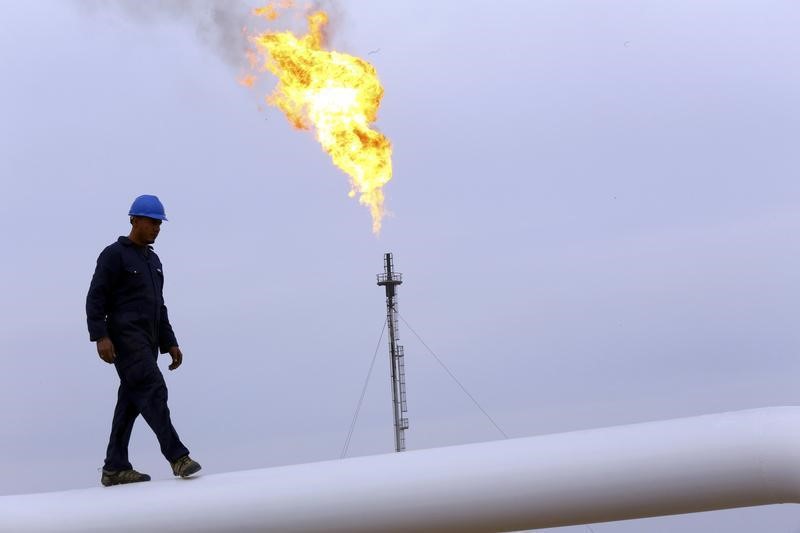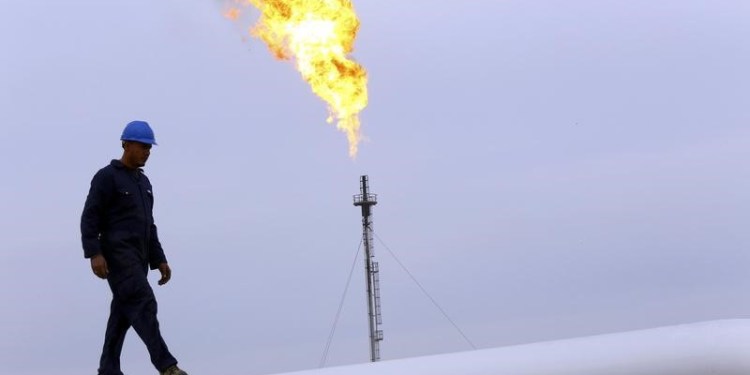
© Reuters.
By Barani Krishnan
Investing.com — The Biden administration’s largest oil release from the U.S. emergency reserve pulled crude prices down 7% for a third lower close in four days, although the market posted big quarterly gains as OPEC+ stuck to its modest monthly addition in global production.
London-traded Brent, the global oil benchmark, settled down $5.54, or 4.9%, at $107.91 per barrel, after a session low at $104.20. Week-to-date, Brent was down around 11%. But for March, it was up nearly 7% and for the first quarter, it rose around 39%.
New York-traded U.S. crude benchmark West Texas Intermediate, or WTI, settled down $7.54, or 7%, at $100.28. Week-to-date, WTI was down 12%. But for March, the U.S. crude benchmark was up almost 5%, while for the first quarter, it rose around 33%.
The White House announced a record release of 1.0 million barrels per day from the Strategic Petroleum Reserve over the next six months — amounting to roughly 180 million barrels — to add to crude circulating in the market.
It also said fees will be imposed on U.S. energy firms that sit on idle oil wells to make extraordinary profits from a supply crunch.
Meanwhile, OPEC+ — the 32-nation strong oil producing alliance led by Saudi Arabia and steered by Russia — approved a modest addition of 432,000 barrels per day in output for March.
The alliance has been sticking to monthly increments of around 400,000 bpd despite the global market being in deficit of anywhere from 5.0-6.0 million barrels daily, especially after the U.S. ban on Russian oil and other Western sanctions that have severely impacted energy exports from Russia.
“President Biden is feeling the pressure from Americans as inflation is getting uglier and this speculated release will show the public he is trying to get gas prices down with the exception of encouraging more drilling,” said Ed Moya, analyst at online trading platform OANDA. “(But) crude prices pared losses after OPEC+ decided ‘to stay the course’ and maintained the gradual output increase strategy.”
The White House said U.S. oil drillers were ignoring the energy crunch in order to “to make extraordinary profits … without investment,” adding that one industry chief executive had acknowledged refusal to pump more oil at even $200 a barrel.
The president’s dare to energy firms on idled oil wells was “Use it or Lose It,” an administration official, speaking anonymously, told media.
“Today, President Biden is calling on Congress to make companies pay fees on wells from their leases that they haven’t used in years and on acres of public lands that they are hoarding without producing,” the White House said in a statement. “Companies that are producing from their leased acres and existing wells will not face higher fees. But companies that continue to sit on non-producing acres will have to choose whether to start producing or pay a fee for each idled well and unused acre.”
Biden ordered the release of 50 million barrels from the SPR in November and 30 million earlier this month, in coordination with the reserves released by other countries that included China, Japan, India, South Korea and Britain.
The SPR had 568.3 million barrels in its stock as of the week ended March 25, according to the U.S. Energy Information Administration. With the current release plan of 180 million barrels over the next six months, the nation’s reserve could be drawn down to a third of its current size.
Biden began tapping the SPR to provide U.S. refiners with oil loaned from the reserve that they wouldn’t have to pay for but return within a stipulated period. By doing this, the administration hoped there will be fewer transactions of oil in the open market and prices for both crude and fuel products like gasoline and diesel would come down.
In recent weeks, the administration has released some 3.0 million barrels weekly from the SPR. But the government’s efforts have had a negligible effect so far on prices, with refiners turning out more products than they usually do at this time of year, resulting in extraordinarily high usage that has kept prices little changed on both the crude and oil products fronts.
Separately, media reports on Wednesday said Biden is likely to invoke this week Cold War-era powers to boost domestic production of critical minerals for the making of electric-vehicle and other types of batteries as the president leans more heavily on renewable energy sources to wean the nation off oil.
Source: Investing.com





























